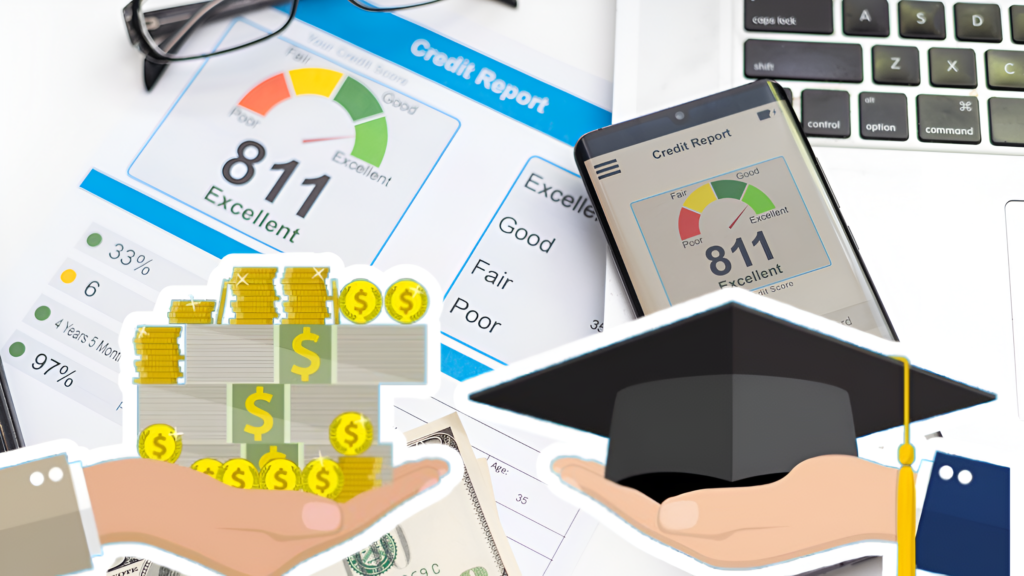Introduction
Student loans are a cornerstone of higher education financing, but many borrowers wonder: does student loan affect credit score? The answer is yes—student loans can influence your credit health both positively and negatively. Understanding this relationship is crucial for maintaining a strong financial profile. This article explores how student loans impact credit scores, offers actionable tips, and answers common questions.
How Credit Scores Work
Credit scores, typically ranging from 300 to 850, are calculated using five key factors: does student loan affect credit score?
Payment History (35%): Timeliness of payments.
Amounts Owed (30%): Total debt and credit utilization.
Credit History Length (15%): Average age of accounts.
Credit Mix (10%): Diversity of credit types (e.g., installment loans, credit cards).
New Credit (10%): Recent credit inquiries or accounts.
Student loans, as installment loans, interact with each of these components.
Positive Effects of Student Loans on Credit Scores
Does student loan affect credit score? Yes, it can have a positive impact when managed responsibly. Making on-time payments, maintaining a good credit mix, and building a long credit history through student loans can help improve your credit score over time.
Building Payment History
Consistent on-time payments demonstrate reliability, boosting your score. For many, student loans are their first credit account, laying a foundation for a positive credit history.Enhancing Credit Mix
Adding an installment loan (like a student loan) to revolving credit (e.g., credit cards) diversifies your credit mix, potentially increasing your score.Extending Credit History Length
As student loans age, they contribute to a longer average credit history, which benefits your score over time.
Negative Effects of Student Loans on Credit Scores
Does student loan affect credit score? Yes, missing payments, defaulting on loans, or having a high debt-to-income ratio can negatively impact your credit score. Poor management of student loans can lead to late payment reports, increased debt, and lower creditworthiness over time.
Missed Payments
Late payments (30+ days delinquent) are reported to credit bureaus, significantly damaging your score. Even one missed payment can drop your score by 100+ points.High Debt Balances
While installment loans don’t affect credit utilization like credit cards, large student loan balances increase your “amounts owed,” potentially lowering your score.Defaulting
Defaulting (270+ days delinquent) devastates credit scores and remains on your report for seven years. It may also lead to wage garnishment or legal action.Hard Inquiries and New Accounts
Applying for private student loans triggers hard inquiries, temporarily lowering your score. New loans also reduce the average age of your credit accounts.
Managing Student Loans to Protect Your Credit
Does student loan affect credit score? Yes, but with proper management, you can prevent negative impacts. Making timely payments, keeping debt levels manageable, and exploring repayment options can help protect your credit score while repaying student loans.
Automate Payments
Set up autopay to avoid missed deadlines. Some lenders offer interest rate discounts for enrolling.Explore Repayment Plans
Income-driven repayment (IDR) plans adjust payments based on income, reducing default risk.Communicate with Lenders
If struggling, request deferment, forbearance, or modified payment plans to avoid delinquency.Refinance Strategically
Refinancing can lower interest rates but involves a hard inquiry. Weigh the pros/cons of losing federal loan benefits.Monitor Your Credit Report
Check annually for errors (e.g., incorrect delinquency reports) via AnnualCreditReport.com.
Conclusion
Student loans undeniably affect credit scores, but their impact depends on how you manage them. By prioritizing on-time payments, communicating with lenders during hardships, and monitoring your credit report, you can harness student loans to build a robust credit history. Whether you’re a current borrower or planning to refinance, understanding the answer to “does student loan affect credit score?” empowers you to make informed financial decisions.
FAQs
Q. Do student loans help build credit?
- Yes! On-time payments and a long repayment history strengthen your credit profile.
Q. Can paying off student loans early hurt my score?
- Possibly. Closing an installment loan might reduce credit mix diversity, but the impact is usually minor compared to the benefits of debt freedom.
Q. How long do student loans stay on my credit report?
- Paid loans remain for 10 years. Defaulted loans are removed after seven years from the default date.
Q. Do multiple student loans hurt my credit?
- Multiple loans increase “amounts owed,” but timely payments mitigate negative effects. Consolidating may simplify management.


Your prose creates vibrant imagery in my mind. I can visualize every detail you portray.
Pingback: Should I Get a Credit Card as a Student? - Paisewaise